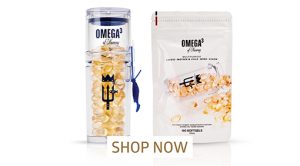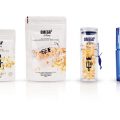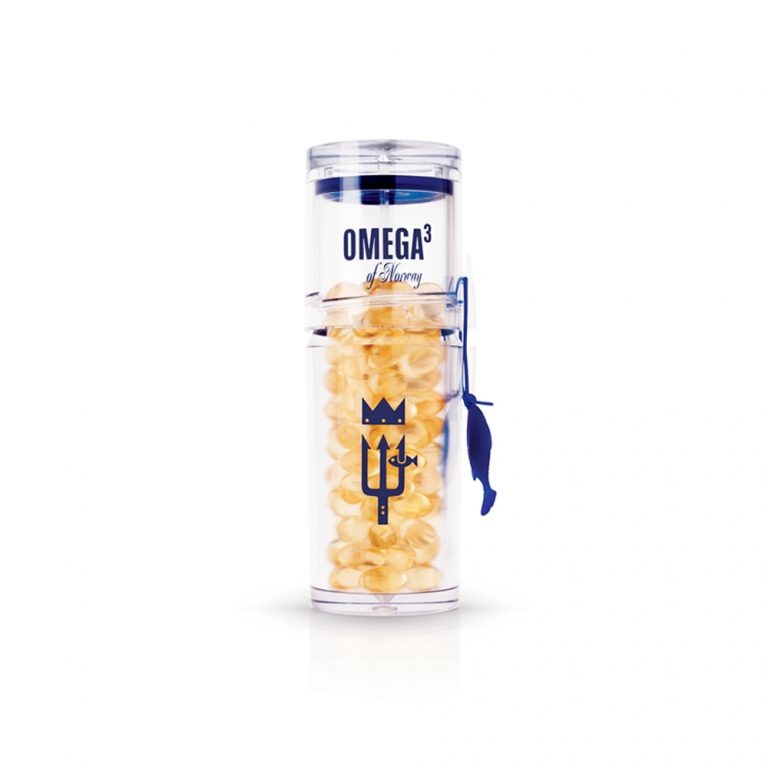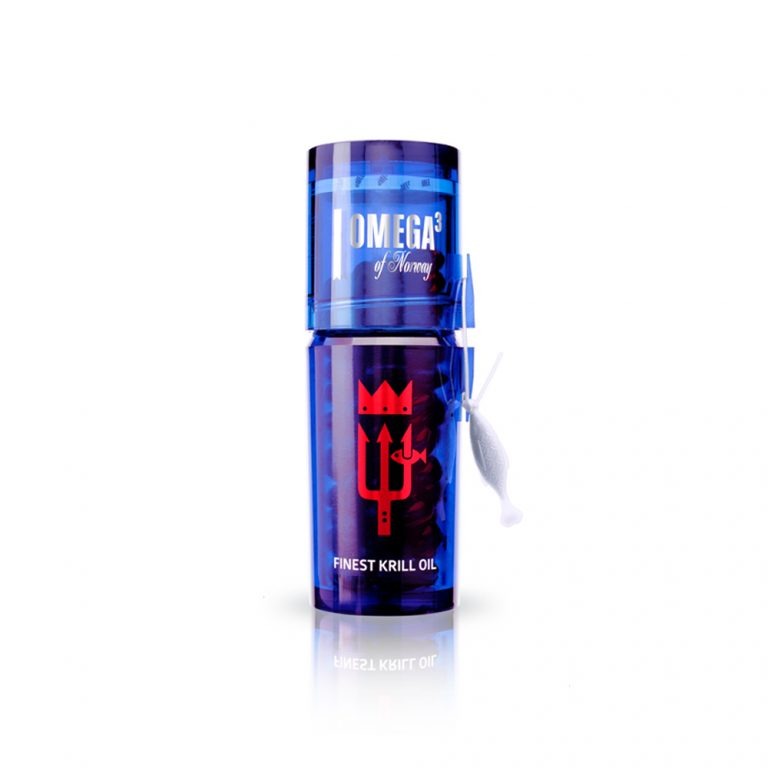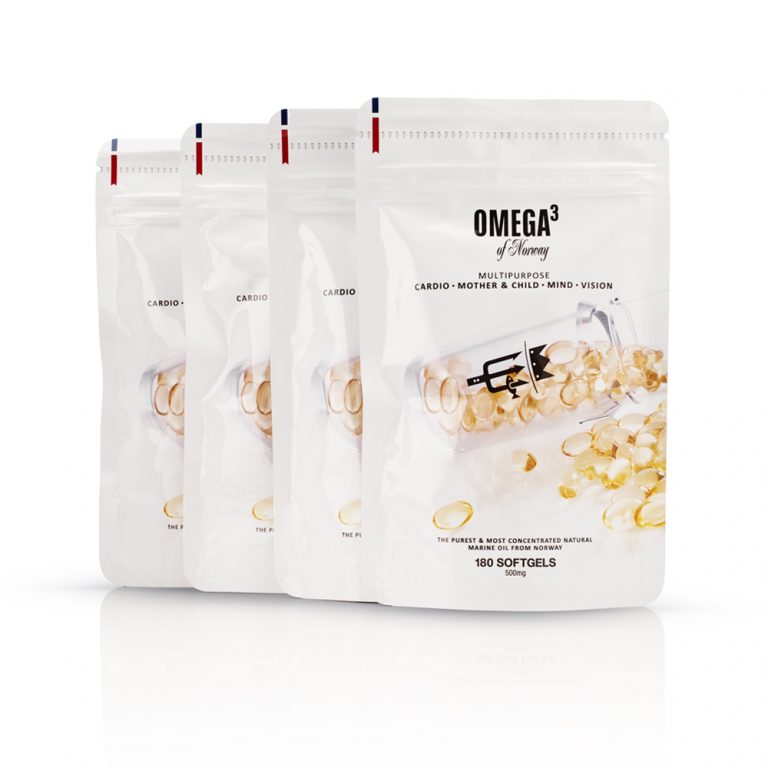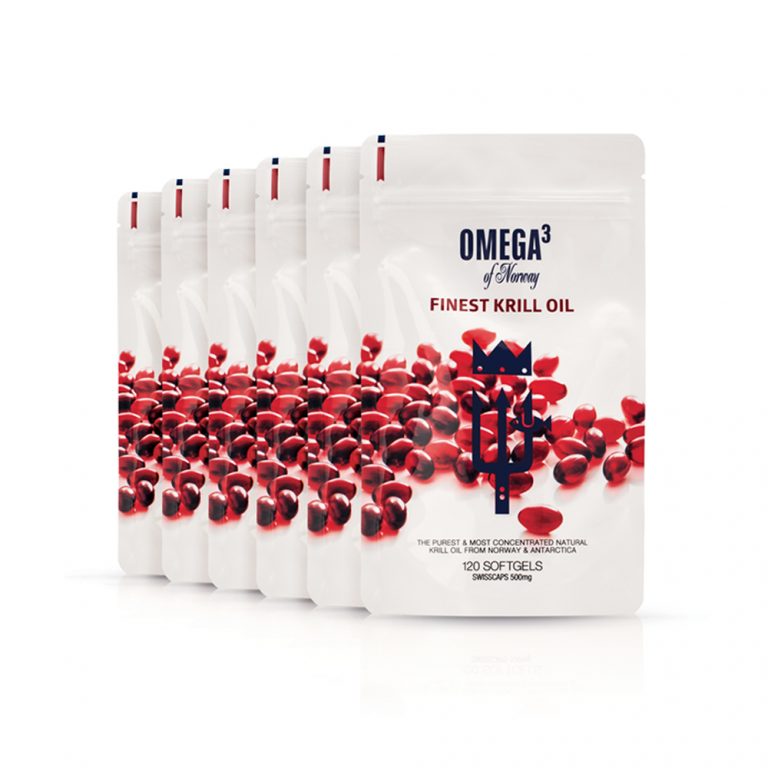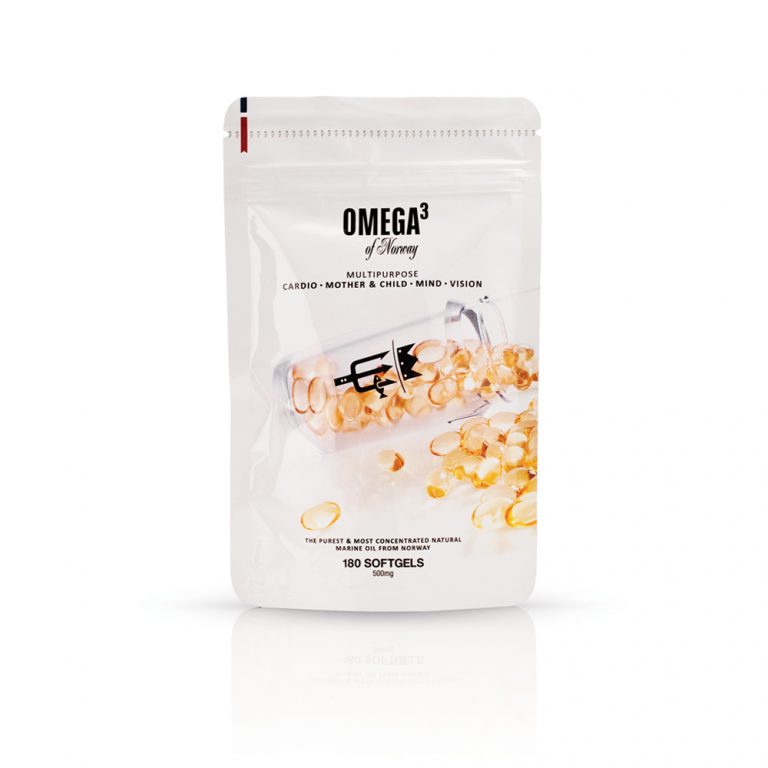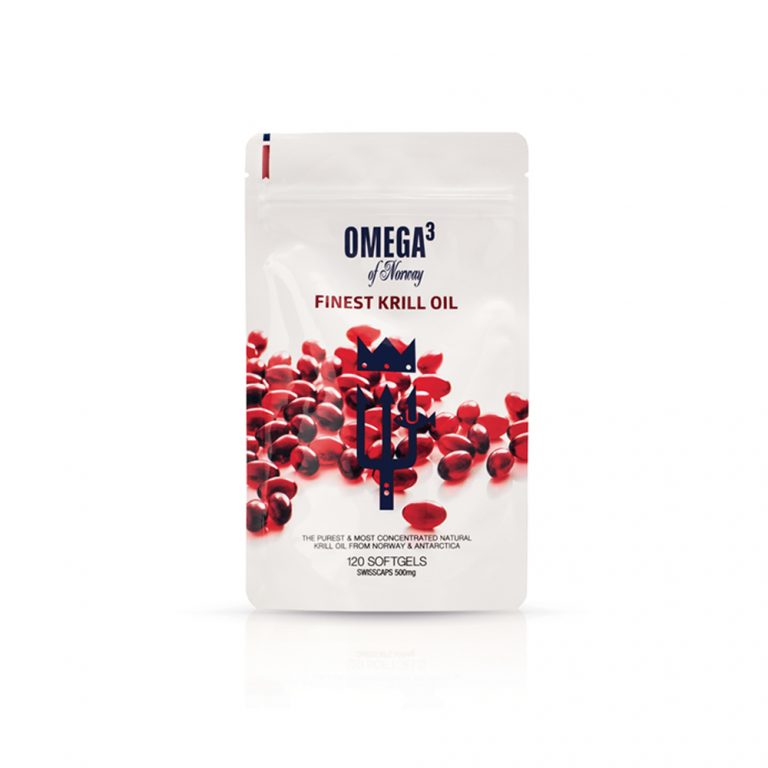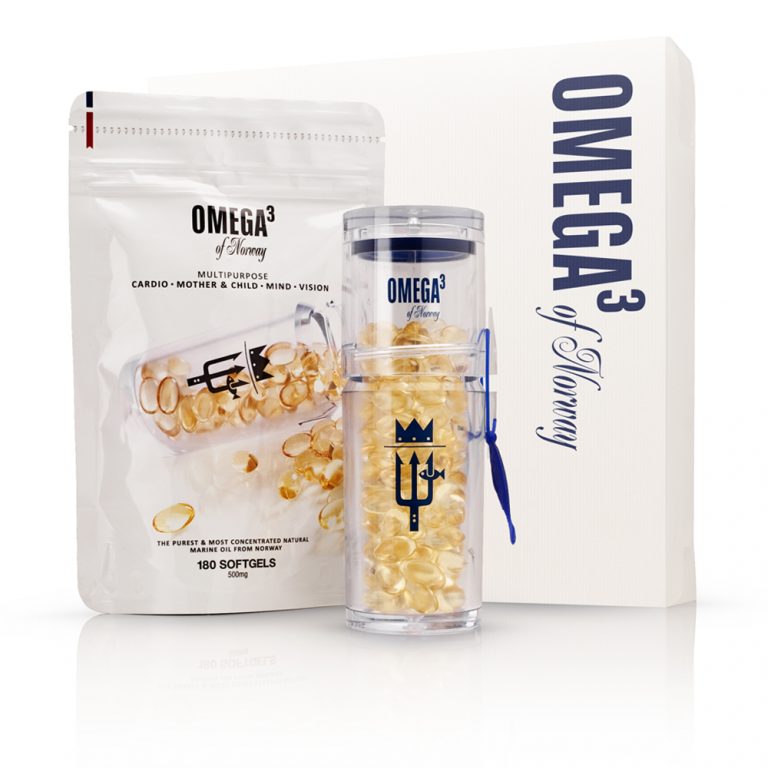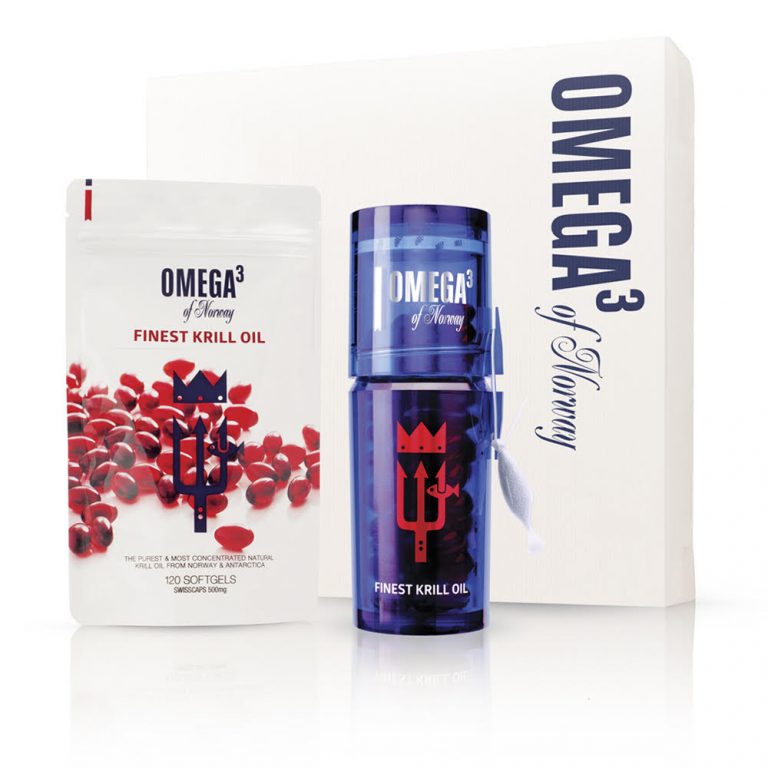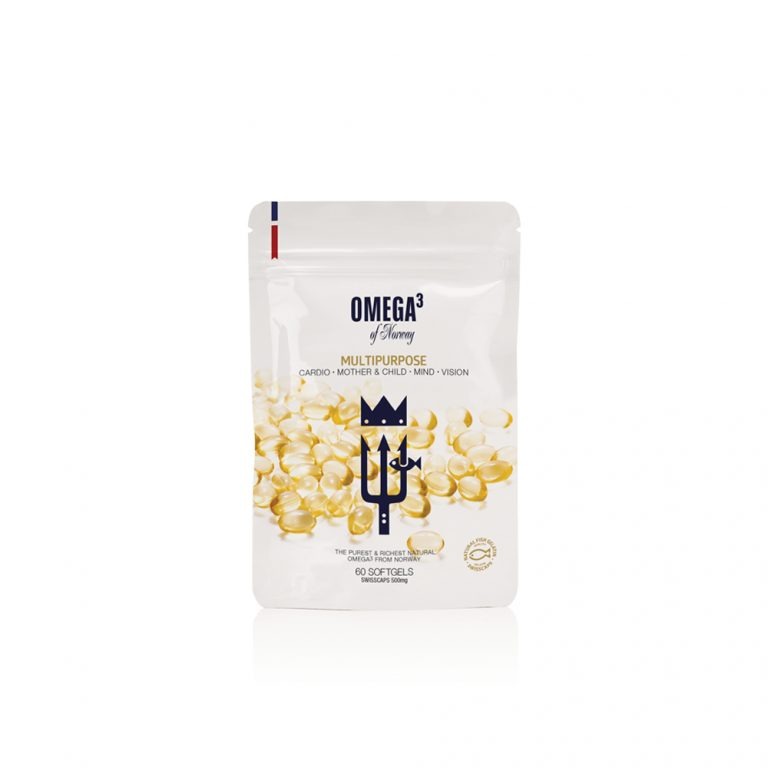Content
The terms fish oil and omega-3 fatty acids are often used interchangeably but they are actually not the same thing! They are connected, but far from identical so in this article we want to look into the differences between omega-3 fatty acids and fish oil and also give you some practical tips and tricks on how to choose the best omega-3 supplement for you!
Omega-3 fatty acids vs fish oil
To sum the main difference between the terms “fish oil” and “omega-3” up right from the start:
- Fish oil contains omega-3 fatty acids, but not all omega-3s are fish oil!
But these two terms also have a few things in common and are both used to describe a specific type of food supplement that contains omega-3 fatty acids, which is where a lot of confusion comes from. Now we will first describe both fish oil and omega-3 fatty acids and then look at omega-3 supplements in more detail below.

What are omega-3 fatty acids
There are 3 main types of omega-3 fatty acids:
- ALA alpha-linolenic acid
- DHA docosahexaenoic acid
- EPA eicosapentaenoic acid
But they come from different sources and different effects on our body and metabolism. ALA is a plant-based omega-3 fatty acid that can be found in different kinds of algaes and other plants like spinach, soybeans, walnuts and different types of seeds or vegetable oils like canola oil.
ALA is a so-called precursor of EPA and DHA, which means that our body is able to transform ALA into EPA and DHA. However, this process is not very efficient and it is generally recommended to consume EPA and DHA directly via specific foods or through food supplements (just like fish oil for example).
EPA and DHA on the other hand, are found in animal products, mainly fatty cold-water fish such as mackerel, anchovies or salmon.
While all of these 3 fats are part of the group of omega-3 fatty acids because of their molecular structure, they do all have different health benefits and effects on our body.
The Health benefits of Omega-3
Omega-3 fatty acids are well known for their positive effects on our cardiovascular system, heart health and immune system. But their benefits don’t stop there!
These specific fats have a lot of positive effects on our bodies, our sleep, cognitive development in kids and can even affect our mental health.
Especially for athletes, supplementing with omega-3s on a regular basis can be very beneficial as their anti-inflammatory properties can help your muscles recover faster after exercise and even help with muscle growth. There are many olympic athletes that rely on supplementing with omega-3 fatty acids to increase their performance so there is no reason for you not to try it as well!
What is fish oil
Fish oil is made from the fatty tissue of fish and can be sourced from a variety of different species like herring, anchovies or salmon. In the context of diet, nutrition and food supplements the term “fish oil” is generally used as an abbreviation for “fish oil supplements” which usually come in liquid form or capsules.
This fish oil is treated and purified in a way that makes it safe to consume for humans and is usually prescribed or taken for medical and health reasons. Fish oil contains a variety of different ingredients and substances, one of which are omega-3 fatty acids!
Taking fish oil supplements is nothing new though and has been a tradition for hundreds of years in some Scandinavian countries like Norway for example.

The Different Types of Omega-3 Supplements
After we’ve seen the main differences between omega-3 fatty acids and fish oil, what are omega-3 supplements? Is there just fish oil or are there other options?
An omega-3 supplement is the easiest way to make sure that you hit your daily target of omega-3 for optimal health. You can rely on the supplement instead of complicated meal plans and planning your food for the whole week ahead of time.
But there is more than just one type of omega-3 supplement:
They both contain the fatty acids EPA and DHA and are therefore called “omega-3 supplements”. For vegans, there is also the option of using an algae-based omega-3 supplement for example.
The differences between fish oil and krill oil
Fish oil is concentrated and purified oil made from the tissue of certain types of fish. They can come in different “forms” like triglycerides, phospholipids or ethyl esters, which refers to the chemical structure of the omega-3 fatty acids within the oil itself.
Generally, triglyceride fish oils are said to be more easily absorbed into our body and cells and have a higher “bioavailability”. These different forms depend on the extraction and purification method of the fish oil, which can be more or less expensive and thorough.
Krill oil on the other hand, is made from krill, which is a small crustacean that lives in great swarms in all oceans of the world. Most krill oils however, use the species of the Antarctic Krill, like we do at Omega 3 of Norway. Krill oil contains EPA and DHA, but also the antioxidant Astaxanthin, which gives it its red color and offers some extra health benefits for us! The omega-3 fatty acids in krill oil usually come in the form of triglycerides and phospholipids, making them very easy to absorb and a very efficient source of omega-3 fatty acids.
Conclusion
So here we go, those are the differences between omega-3 fatty acids and fish oil! The goal of this article is to clear up some confusion about the use of these different terms and how and why they are both related to omega-3 supplements.
Now we know that
- Fish oil and omega-3 are different things, but the terms are sometimes used to describe the same thing: omega-3 supplements
- Fish oil is made from the tissue of oily cold water fish
- Omega-3s are a specific type of fatty acids, and there are 3 main types: EPA, DHA and ALA
- Omega-3 supplements are important for our health and well-being and there are different types such as: fish oil and krill oil
If you have any other questions or doubts please feel free to get in touch via email or leave us a comment!
You can find more about our products and information about all things fish oil and omega-3 on our blog or in our shop.







